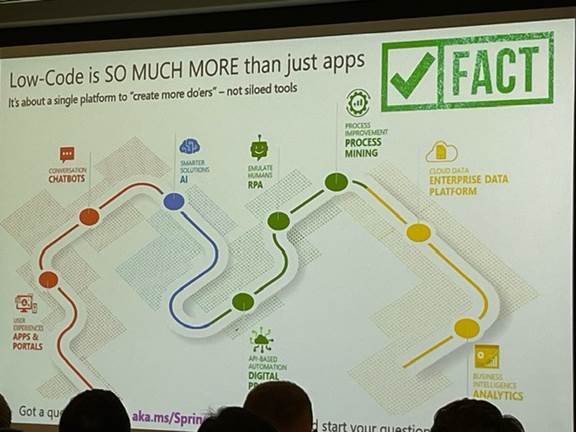Exploring our shared tech future: Microsoft Business Applications Partner Springboard event

An opportunity for Microsoft and partners to connect and share insights.
Last week, I had the pleasure of attending the Microsoft Business Applications Partner Springboard event in London. The event saw Microsoft specialists talking about the current market activity across UK and EMEA, product updates, and fireside chats alongside networking opportunities.
We started with an overview of the current UK market, trends and insights into the ways people are increasingly adopting new technologies at speed. One of the benchmarks we explored was how long it takes to build a user base of over one-million users. Depending on the data source these can vary, but for headline comparison: Facebook took 10 months, Spotify took around 5 months, the latest iteration of ChatGPT took approximately 5 days, and the Threads app took less than an hour. This shows not only the power of social media and marketing but also that users are excited to try the latest technology as soon as possible. Though we should note that if experiences don't deliver, users leave just as fast!
From a product perspective, the discussions focused on Dynamics 365 and Power Platform - key software suites used by both small to medium organisations and across the enterprise space.
